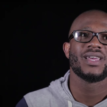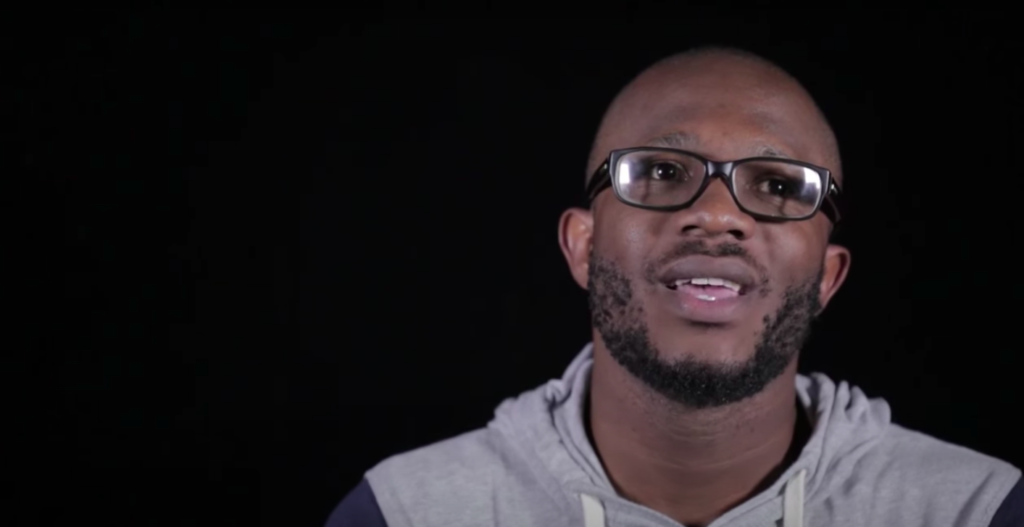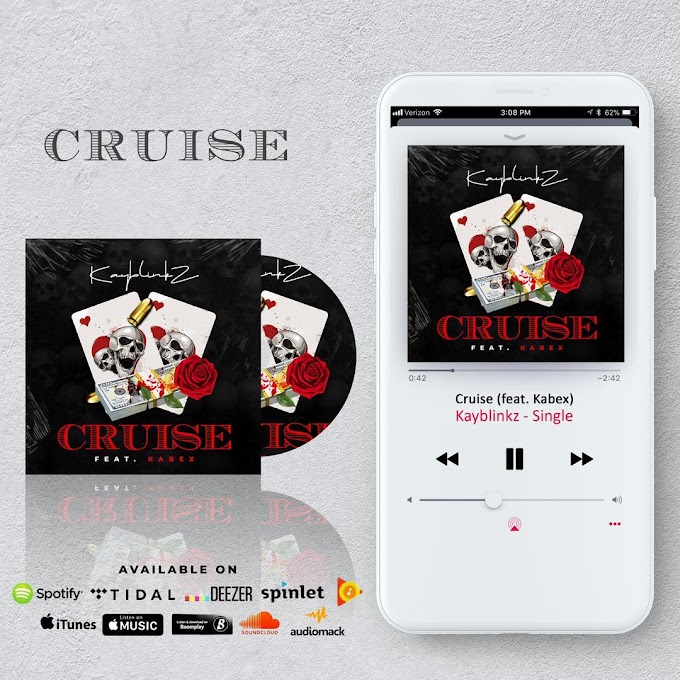

James Omokwe and Africa Magic share a passion for telling African stories; this is evident in the films Omokwe makes and the content Africa Magic showcases. Omokwe, who has a penchant for killing viewers’ favorite characters, talks about Riona, his inspiration, the challenges of making 200-episodes shows and why he loves to kill beloved characters.
What’s the inspiration behind cultural stories like Riona and Ajoche?
I didn’t have total control in making Ajoche or Riona. However, I’ve always wanted to tell cultural stories, and when I started my company, the goal was to create authentic African content. We started with a folktale called Ojuri; it was a test to see if we could do some epic shows, and we did. That same year, I was called to attend a story workshop, where we were asked to create some stories. My current head writer narrated this folktale, and we carved it into Ajoche. I didn’t know I was going to be the executive producer. I thought it was cool and wanted to work on it as a consultant. I told them, ‘we’ve done something like this before. I wanted it better than any epic story on other channels, this should look good – add some cinematic stuff,’ and they were like, ‘yeah, whatever.’ A couple of months later, I got the call to executive produce. So, it was an opportunity to do what I’ve always wanted to do. It is not about inspiration; I’m just fortunate to be doing these shows.
ALSO READ: Trump joins ranks of one-term US presidents: Who are they?
You seem to love exploring stories of minor ethnic groups who don’t get enough representation on TV. Is this important to you?
Yeah. While making Ajoche, we didn’t want to focus on the major tribes. I’m Igbo, but these tribes (Hausa, Igbo and Yoruba) are what you see on every epic show, and we wanted to run away from that. We decided on other tribes, but the question was which of the minor tribes we focus on? I remember the first thing that came to my mind was my friend’s mother-in-law, who is Idoma. I wanted us to do something about the Idoma tribe because I thought we would have conversations with her, and she was going to give us a lot of insight into their culture. We didn’t talk to her eventually; we just did extensive research.
Fortunately, Ajoche was a huge success. A lot of Idoma people swallowed it like crazy, including Senator David Mark, who invited us to his house. His real name is Alechenu, and his wife’s name is Elakeche, two of the major characters on the show, so he resonated with the story a lot.
For Riona, we wanted to do something different. We looked at two tribes and went with the Itsekiri. And if they do give us another epic, we will choose another minor tribe. It is some form of education or a peek into our history because we know the Hausas, Igbos and Yorubas, but there are so many other tribes with beautiful cultures that we don’t know about.
Riona looks like a lot of work was put into it, from the set to costumes. What was the process like?
We wanted an accurate depiction of the culture, not as precise because, well, there are no visual references for the year that it is set in (it is the third century). All you have is oral references. I got the art department together, and we asked ourselves, ‘how do we build this world? Who are these people? What do they do for a living? How would the entire village be?’ The village is divided into two parts; the Omajaja (the nobles) and the Irale (the lowborn’s). We had to design differently the kind of house an Omajaja would stay in and the one an Irale would stay in. Then we had the costume crew build costumes for these people; then, the props guys made weapons. Once we agreed that these were the picture references of the world we were building, we went ahead to build it.
What went into developing the story?
Usually, they give you a synopsis and say this is the idea behind the story, and we start to develop the story. We do this with the writing team because they give ideas on the different characters. It is an entire two-week process, building the story and the world, and it’s always a collaborative effort.
ALSO READ: Malaria dangerous in pregnancy, can cause death — Parasitologist
How long did shooting take, and what were some of the delight and challenges you faced?
We’re still shooting. Shows like this take about nine to ten months to shoot, but we always have a three-month head start. With Riona, I think we shot for two months. We are probably shooting into episode 100 when what’s on TV is episode 21.
Challenges?
Rain. We are in the forest; when it rains, the place gets flooded. We had significant flood issues when we started building the set. So we had to sand-fill some areas and build bridges here and there. But we have more control now because of how we have built and secured the set. Yeah, the rain may come and stop us from filming, but it doesn’t affect the location. Also, there are wild animals – snakes – but it’s not a problem. We are used to it. And noise because we’re near a construction site, trucks move all the time. But again, we’ve managed to deal with this.
What are some of the delights? It can’t be all challenges.
The most fun thing is watching the pages of your scripts come to life. That’s the delight I get because it’s incredible seeing certain scenes you discuss in prep come alive. Also, seeing the actors give justice to these characters. It’s like magic! And the fact that people love the show. I was a bit skeptical because the biggest fear that you have is, how do you top your last show knowing fully well that Ajoche was a success? Fortunately for us, it’s better
We love the performances on Riona, and it seems the cast is mostly Theatre actors. Was this deliberate?
Kind of. I wanted the acting to be top-notch because you can do excellent production design and splendid props, but it will not tell a story if the acting is horrible. All that – props and production design – is for people like us who appreciate those things. Not like people don’t enjoy production design, but nobody is going to be saying, “eiya, the wrapper is fine.” If the acting is not great, then you’ve failed woefully in delivering the script given to you. So we made sure the people we got were great actors. Fortunately for us, some of them had a theatre background, and they did pretty well in their auditions. I used to worry because theater is different from TV; with theatre, you’re overly expressive, but these guys have managed to bridge that divide. They’re doing well, and I’m happy, but it wasn’t necessarily intentional.
King Ofotokun is such a delight to watch. Was it the plan to make such a ruthless character charming?
I don’t know about charming, maybe in the beginning.
Yeah, in the beginning.
He is quite charming with his wife, Mofe, but he’s human, and there’s good and evil in every human being. I tell people that humans are ultimately selfish, and it is King Ofotokun’s selfishness that made him do a lot of gruesome things. His greed is extreme; he will do anything to rule forever, and he will be ruthless about it. But he’s not inherently evil. As far as he’s concerned, he has a wife who is about to give birth to his son. He loves her so much, but he cannot die.
But like I said, he’s human, he is soft when he needs to be, and he’s ruthless when he needs to be. It’s part of his character build. He would do anything to protect his wife and son and destroy anything that stands in his way. To answer the question, yes, it’s intentional.
Looking at Ajoche and Riona, you seem to love killing beloved characters.
The truth is that people will die anyway. People must die to move the story forward. So for us, we wanted to start the story by showing how ruthless this guy is. He is a cruel king who doesn’t mind spilling blood, and there’s more death coming on the show. A lot of people are going to die!
Are there going to be some of the characters we love on the show?
Well, I can’t tell you that, but of course, there are people you love. That’s the more painful part of it, so when they go, you can send me an email to tell me how wicked I am. But it is the story. The thing about doing TV shows like this is how you manipulate people who are watching this show. We want you to laugh, cry, feel bad. We want you to hate these characters. We want you to be super upset.
Vanguard
The post The Riona series: There’s more death coming on the show, says director, Omokwe appeared first on Vanguard News.






















0 Comments
Advertise your business here at cheap rate and get large audience to your market. Call/Msg Teemikemedia: 07060733664 to get started.